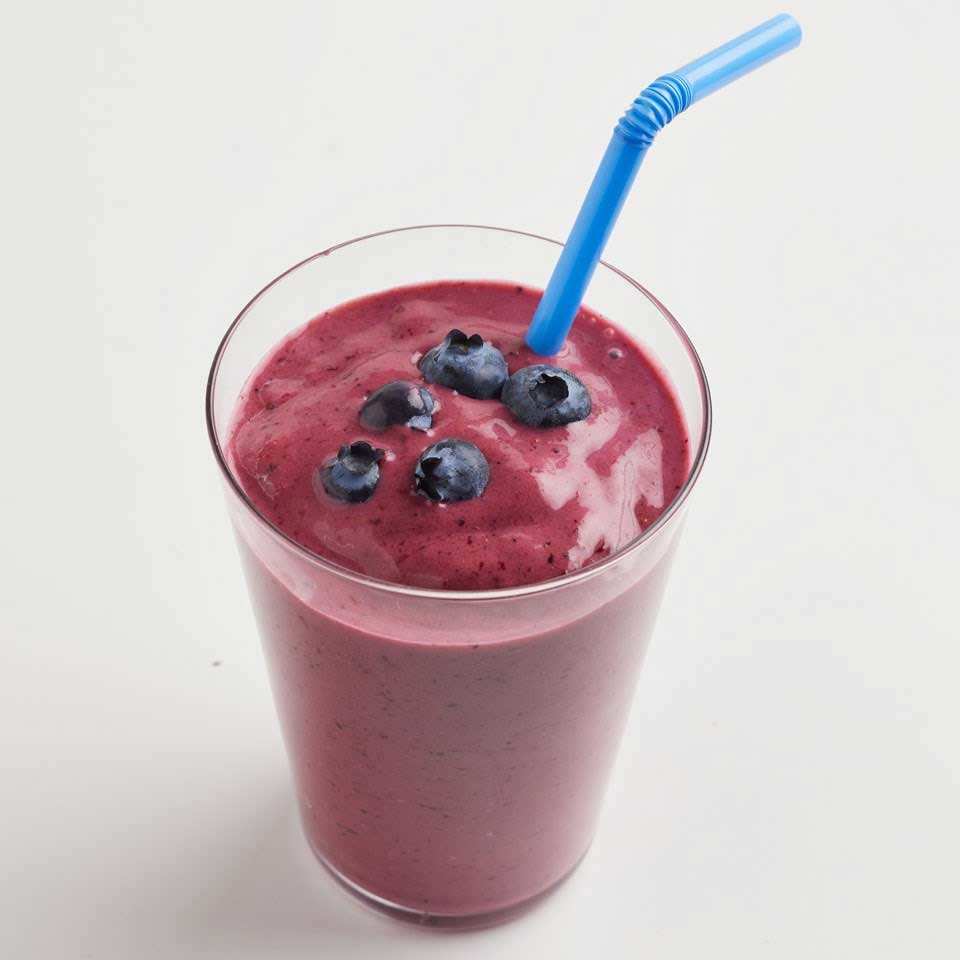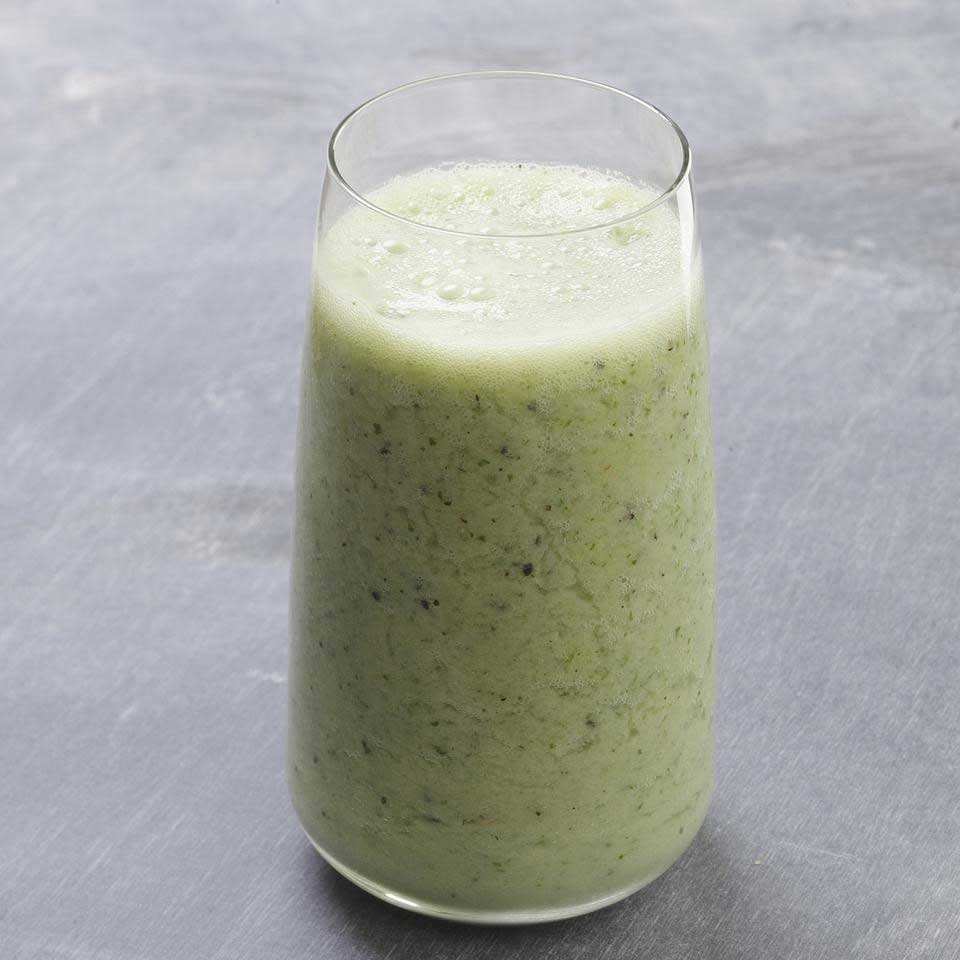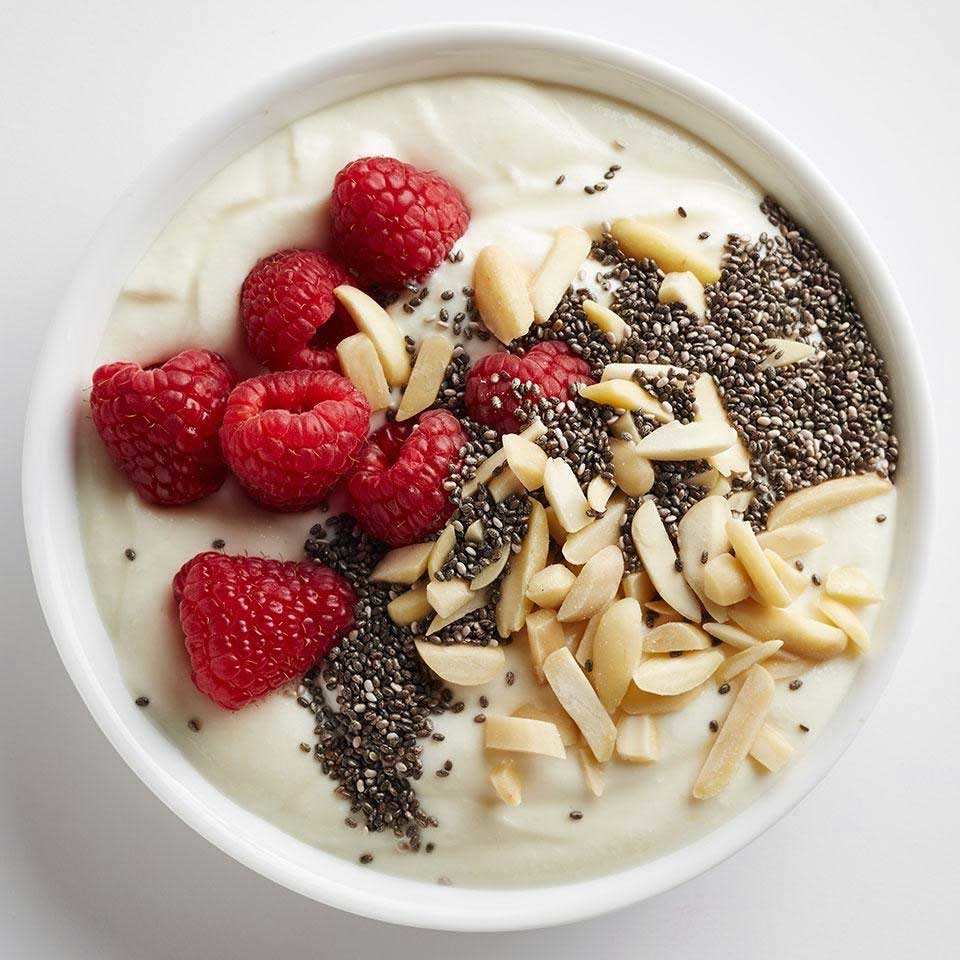Try these 7 probiotic-rich foods for gut health. The good bacteria may improve digestion, boost immunity, promote a healthy weight and more.
Fermented foods are a hot health topic—and for good reasons. These good bacteria—particularly those in our gut—may improve digestion, boost immunity and help us maintain a healthy weight. Research is still emerging on just how important these mighty microbes might be for our health, but the early results are promising. Take care of your gut, and in turn, it will take help take care of you.
Eating foods packed with probiotics—good bacteria—is one way to boost up your gut health (eating more foods that are high in fiber, particularly prebiotic-rich foods, is important too). Fermented foods, like yogurt and kimchi, are rich in probiotics. The good bacteria grow during the fermentation process. Add these seven fermented foods to your diet for a healthy dose of probiotics.
1. Sauerkraut

Sauerkraut is good for more than just topping a hot dog. Made from just cabbage and salt, this fermented food delivers a healthy dose of probiotics and fiber. You can make your own or buy sauerkraut at the store. The kind sold in the refrigerated section will have more probiotics than shelf-stable canned or jarred varieties.
2. Kimchi

This spicy Korean side dish made from fermented cabbage and other vegetables is touted as having anticancer properties and other health benefits. We also know the probiotics found in kimchi are good for our gut health. Look for it in the refrigerated section near other Asian ingredients or pickles and sauerkraut. Eat it on its own or try it as a burger topper or atop tacos.
3. Kefir

A fermented milk drink—it tastes like drinkable yogurt-kefir is full of calcium and probiotics. Just like yogurt, probiotics in kefir help break down lactose, so it may be easier to digest for people with lactose intolerance. Kefir is delicious in smoothies or by itself.
4. Kombucha

Kombucha is a tangy, effervescent tea-typically black or green-that’s rich in good-for-you yeast and bacteria. The drink is often flavored with herbs or fruit. You can find kombucha in natural foods stores, farmers’ markets and your regular grocery store. A tiny amount of alcohol is sometimes produced during fermentation-usually less than 0.5 percent alcohol by volume (although some have been found to have closer to 2-3 percent) If you’re not into the sour taste, you may just have not found the right brand or flavor for you.
5. Miso

A fermented paste made from barley, rice or soybeans, miso adds a nice umami flavor to dishes. It’s bold, so a little goes a long way (which is good because it’s also high in sodium). Miso is typically found in soups, but also makes salad dressings and marinades even more delicious and gut healthy.
6. Tempeh

Tempeh is made from naturally fermented soybeans. It’s similar to tofu in that it’s a plant-based protein made from soy, but unlike tofu, tempeh is fermented. It also has a firmer texture and a slightly nuttier flavor profile. It’s a good source of probiotics-and, because it contains all the essential amino acids, it’s a complete source of vegetarian protein.
7. Yogurt

Yogurt is made by fermenting milk. Yogurt labeled with the “Live & Active Cultures” seal guarantees 100 million probiotic cultures per gram (about 17 billion cultures in a 6-ounce cup) at manufacturing time. Even yogurts without this seal contain probiotics. The probiotics in yogurt help digest some of the lactose (milk sugar) so if you’re lactose intolerant you may be able to enjoy yogurt. Plus, many companies are now making dairy-free and vegan yogurt.
Important Notice: This article was originally published at www.eatingwell.com by Lisa Valente, M.S., RD where all credits are due.
Disclaimer
The watching, interacting, and participation of any kind with anything on this page does not constitute or initiate a doctor-patient relationship with Dr. Farrah®. None of the statements here have been evaluated by the Food and Drug Administration (FDA). The products of Dr. Farrah® are not intended to diagnose, treat, cure, or prevent any disease. The information being provided should only be considered for education and entertainment purposes only. If you feel that anything you see or hear may be of value to you on this page or on any other medium of any kind associated with, showing, or quoting anything relating to Dr. Farrah® in any way at any time, you are encouraged to and agree to consult with a licensed healthcare professional in your area to discuss it. If you feel that you’re having a healthcare emergency, seek medical attention immediately. The views expressed here are simply either the views and opinions of Dr. Farrah® or others appearing and are protected under the first amendment.
Dr. Farrah® is a highly experienced Licensed Medical Doctor certified in evidence-based clinical nutrition, not some enthusiast, formulator, or medium promoting the wild and unrestrained use of nutrition products for health issues without clinical experience and scientific evidence of therapeutic benefit. Dr. Farrah® has personally and keenly studied everything she recommends, and more importantly, she’s closely observed the reactions and results in a clinical setting countless times over the course of her career involving the treatment of over 150,000 patients.
Dr. Farrah® promotes evidence-based natural approaches to health, which means integrating her individual scientific and clinical expertise with the best available external clinical evidence from systematic research. By individual clinical expertise, I refer to the proficiency and judgment that individual clinicians acquire through clinical experience and clinical practice.
Dr. Farrah® does not make any representation or warranties with respect to the accuracy, applicability, fitness, or completeness of any multimedia content provided. Dr. Farrah® does not warrant the performance, effectiveness, or applicability of any sites listed, linked, or referenced to, in, or by any multimedia content.
To be clear, the multimedia content is not intended to be a substitute for professional medical advice, diagnosis, or treatment. Always seek the advice of your physician or other qualified health providers with any questions you may have regarding a medical condition. Never disregard professional medical advice or delay in seeking it because of something you have read or seen in any website, video, image, or media of any kind. Dr. Farrah® hereby disclaims any and all liability to any party for any direct, indirect, implied, punitive, special, incidental, or other consequential damages arising directly or indirectly from any use of the content, which is provided as is, and without warranties.








